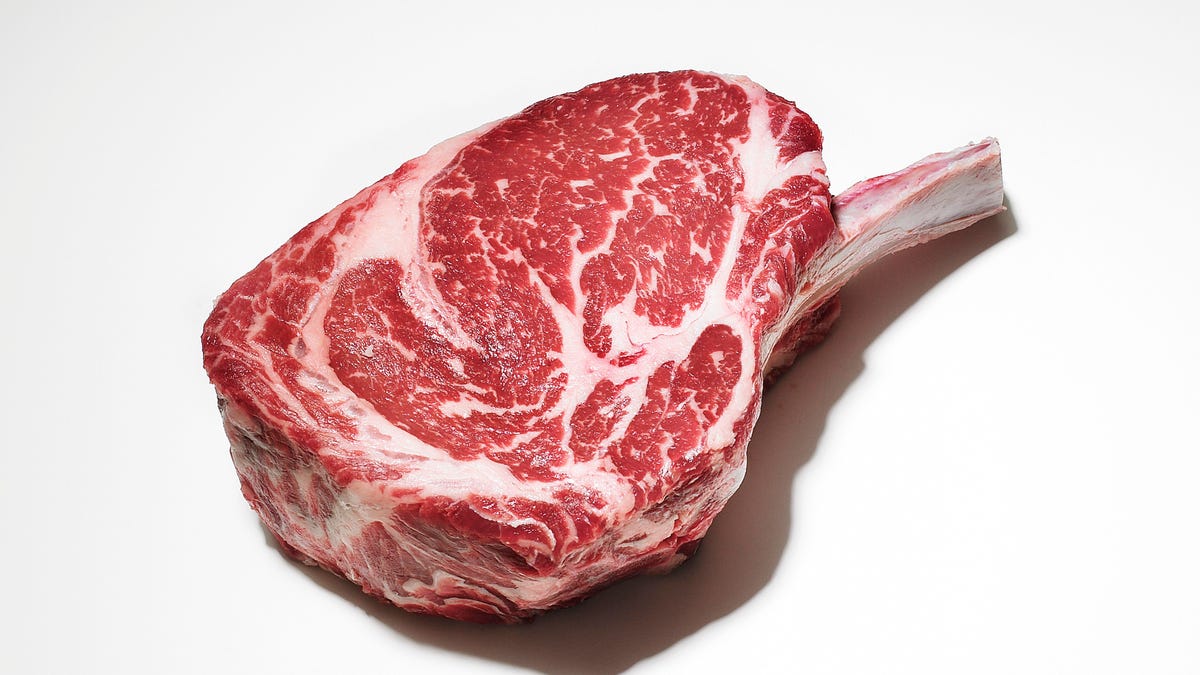People are eating fermented meat to get high. Here's why that's dangerous
"High meat," or rotten meat that's been fermented, reportedly gives some people a euphoric feeling. But it carries a risk for serious illness.

In a diet that seems to be a cross between the primal eater's paleo diet and the probiotic-forward kombucha trend, people are eating "high meat" -- fermented or straight-up rotten meat that, some say, leaves them feeling buzzed. After the trend made a resurgence on social media and resulted in a Vice report, others have questions.
People's reasons for eating rotten meat seem to differ from person to person. Some enjoy the feeling of euphoria that apparently comes from eating decomposed meat -- a Reddit user described a feeling of "euphoria, unity, and family." Others are reportedly eating it for health reasons and as a way to what they say is a more natural diet full of healthy bacteria and probiotics. These consumers, including YouTuber Frank Tufano, argue that many people's ancestors and some indigenous tribes used to store and ferment meat for several days or months. He claims they ate it as a delicacy, which is how he describes his jar of fermented meat fat.
To the unprepared eye (or the close-minded one, depending on who you ask), a video of someone eating rotten meat is gross. But those like Tufano argue that we already eat fermented things like cheese, wine, bread and other foods that remain dietary staples. So what's the difference?
Without knocking anyone's freedom to eat whatever they want and expand on the ever-growing list of fads that carry a hefty risk-benefit equation, here's an attempt to answer your questions.
What is high meat?
Not at all. This is how it looked btw pic.twitter.com/pCBGMCTKvf
— HowHighCanThisGo 💮 (@DKexer) April 12, 2021
High meat is raw meat that has been left out for fermentation, a process that uses organisms to bring a chemical change to food. And while there's a difference between controlled fermentation versus leaving meat to rot, Men's Health reports, it can be a hard process to get right.
Although those like Tufano take viewers through a thorough step-by-step tutorial on how to ferment meat, the risk of botulism and other hazardous, sometimes deadly foodborne illnesses is there. According to the CDC, there were about 350 cases of botulism from 1950-2017 in Alaska due to fermented foods that are commonly eaten in the state.
Why are people eating it?
For people like Tufano, eating high meat is the treat at the end of a long food preparation journey that brings him closer to the days of early humans. The rotten meat trend falls under the paleo (or primal eating) umbrella, with paleo dieters choosing foods that hunter-gatherers would have eaten in the Paleolithic era -- 10,000 to 2.5 million years ago, according to the Mayo Clinic.
In a 2010 New Yorker article, a source describes the practice of eating fermented foods as a "conservative movement," rather than a crazy trend, to "bring back food the way it's been."
What are some risks of eating high meat?
Leah Groppo, a clinical dietician at Stanford Health, said that even if you're thorough in your meat-fermenting process, there are too many factors out of your control that can lead to illness. The bacteria in the air that can land on the raw meat and multiply, to name one.
"There's a lot of variables you can't account for," Groppo says.
For those following the paleo or "paleolithic" diet, Groppo says it's also impossible to know the "ramifications" for people in the past who ate fermented meat, or to follow exactly how they consumed meat. Additionally, Groppo says their meat was probably a lot fresher and safer to ferment.
"The meat people caught was different from the meat that's being bought at a grocery store," Groppo says. Porous meat, like ground beef, carries an extra-high risk, she says.
Eating fermented meat from grocery store beef carries serious risks.
Besides the aforementioned risk of botulism, which can kill you, eating food that's been left out can cause foodborne illness caused by either foodborne infection or intoxication, according to the United States Department of Agriculture. The USDA states foodborne infection can be caused by "eating food that contains live bacteria or pathogens." -- most commonly norovirus and salmonella. Foodborne intoxication, according to the USDA, is "caused by eating food that contains toxins that are released by pathogens." Botulism is a foodborne intoxication.
In a less scientific story to warn you about the dangers of homemade rotten meat, the New Yorker article on primal eating describes leaving high meat eaters, at times, "explosively incontinent." Or, to put it plainly, with diarrhea.
Why can some people get high off meat?
In a report linked by IFL Science, the publication speculates that the high euphoric feeling people report may come from "unknown mechanisms" of the fermented meat, or simply a "delirium" brought on by an upset stomach.
Naras Lapsys, a Singapore-based consultant dietitian, told Vice that the bacteria grown in the meat could elicit the high effect.
"If you're leaving this out for anything from days to months to years, who knows what kinds of [bacteria] are going to grow, and some of those bacterias might have chemical properties that are going to give you a high, or hallucination, or a feeling of euphoria," he said.
Any way you slice it, it's probably in your best interest to make a pros and cons list before you try to get high off fermented meat.
"There's a lot to be said about the scientific literature we have around food safety," Groppo says. "It's pretty solid science."

